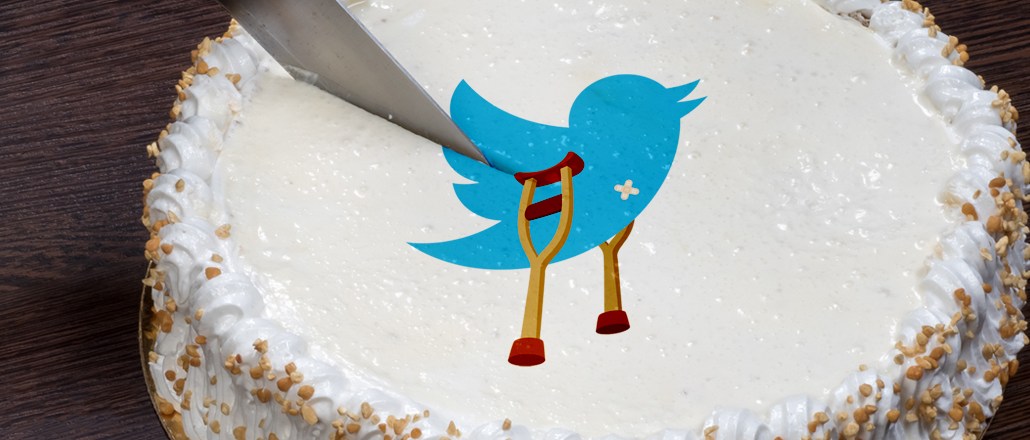Secure your place at the Digiday Media Buying Summit in Nashville, March 2-4

To get you ready for the weekend, we’ve rounded up some of our best stories this week. The theme here is platforms — who’s up, who’s down and who’s innovating. Twitter is striking out with publishers while Snapchat has become useful for brands. Facebook, for its part, is making a play for TV dollars. We also have a fun Q&A with a marijuana marketer.
Twitter falls out of favor with publishers
Social publishing is becoming a zero-sum game.
As media companies clamor for readers on Facebook, Instagram and Snapchat, Twitter is losing the attention battle, reports Lucia Moses. Publishers are waking up to the fact that Twitter doesn’t have the audience scale, visual storytelling tools and ad products that the others do. For new media companies in particular, Twitter is a side job, said Paul Berry, CEO of RebelMouse.
“It used to be one person on Facebook, one person on Twitter,” he said. “Now it’s three people on Facebook and half a person on Twitter.”
Snapchat has its doubts
Not everything Snapchat touches turns to gold.
Senior reporter Sahil Patel looks at issues advertisers have with Snapchat Live Stories, which were an early ad opportunity on the messaging platform. The bottom line: Live Stories aren’t getting as much user attention as they used to, which could mean a much bigger issue in the run-up to the expected Snapchat IPO next year. Patel explained in Digiday Deep Dive, our mini-podcast on big issues of the week.
[soundcloud url=”https://api.soundcloud.com/tracks/296906577″ params=”auto_play=false&hide_related=false&show_comments=true&show_user=true&show_reposts=false&visual=true” width=”100%” height=”450″ iframe=”true” /]
Birchbox’s revenue generating Snapchat hack
Snapchat might be a hard nut to crack for many brand marketers because of its lack of metrics. But Birchbox knows how to turn its Snapchat followers into buying consumers through a simple trick: Vanity URLs.
Over the Black Friday and Cyber Monday weekend, Birchbox created a simple URL — birch.ly/Steals — exclusively for Snapchat to showcase its special holiday deals like Kiehl’s skincare set. The company saw more traffic to its site from this hack than organic Facebook posts.
“There’s a higher level of intent on Snapchat because it’s hard to discover people,” said Julia Casella, social media manager for Birchbox.
Facebook’s play for TV dollars
As Facebook tries to become more like TV, one particular feature is proving to be a huge hit among analysts and media buyers alike — before it is even rolled out en masse. The social network has been testing out a dedicated video tab inside its mobile app among a select group of users over the past year — a move that equips it to grab more ad dollars from TV, according to media buyers and analysts alike.
“It’s been difficult to look at Facebook video as a premium offering, as it has so far been somewhat hidden in your feed and not had its own dedicated channel,” said Kirsten Atkinson, vp of media and branded integration at Walton Isaacson. “But them making making a concerted effort to program it and create a dedicated space for it will definitely attract more buys.”
Confessions of a weed marketer
Marijuana is quickly becoming big business. That means the new industry needs to master marketing and branding. Enter ad agencies. We spoke to the CEO of an agency with a half dozen marijuana-related clients. In a Q&A with editor-in-chief Brian Morrissey, he said working with cannabis clients is a lot like working with disruptive digital startups.
Is it different working for pot clients?
You sit down with them, and for the first 10 minutes, you’re telling yourself this is crazy. Then you switch over quickly to talking about it like any other consumer product. These clients are operating like any startup. They’re moving quickly in a growing space.
What are the biggest challenges for these companies?
Consistency is one of the problems the industry has. The other is dosing. Everybody has a different tolerance. Also complication. Some dispensaries that have 500 different strains. It’s the paralysis of choice.
I have to ask: Lots of times clients send over their products to the team.
There’s free weed around the office constantly. But it becomes a real client really quickly. Why people want to work on it isn’t because it’s weed. It’s the same reason you want to work on startups: It’s disruptive and innovative. It’s the birth of a new industry. It’s really fun to be part of something like that.
More in Media

Media Briefing: Turning scraped content into paid assets — Amazon and Microsoft build AI marketplaces
Amazon plans an AI content marketplace to join Microsoft’s efforts and pay publishers — but it relies on AI com stop scraping for free.

Overheard at the Digiday AI Marketing Strategies event
Marketers, brands, and tech companies chat in-person at Digiday’s AI Marketing Strategies event about internal friction, how best to use AI tools, and more.

Digiday+ Research: Dow Jones, Business Insider and other publishers on AI-driven search
This report explores how publishers are navigating search as AI reshapes how people access information and how publishers monetize content.





